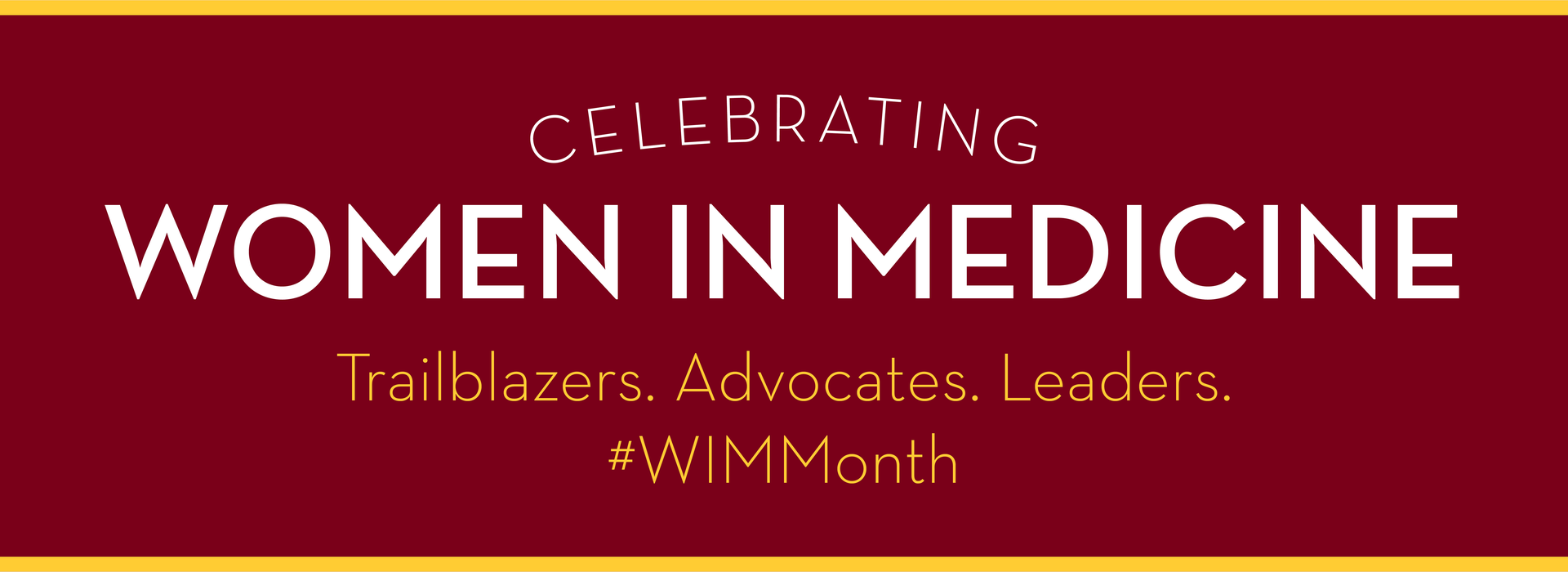
Women in Medicine Month
The University of Minnesota Medical School Center for Women in Medicine and Science (CWIMS) is excited to celebrate Women in Medicine Month during the month of September!
Women in Medicine Month aims to:
- Serve as a platform to showcase the accomplishments of women in medicine including physicians/clinicians, biomedical scientists, educators, and leaders
- Highlight advocacy needs related to professional concerns of women in medicine and health issues impacting women patients
- Promote career success opportunities specific for advancing gender equity
People of all genders are welcome to join CWIMS in a month of events and activities.
Check out a few other ways you might get involved in CWIMS year round!
Activities
1 minute Activities for Anyone
-
Join the CWIMS Connect Google Email Group and keep up-to-date!
-
Consider Hosting a Visiting Scholar! The Center for Women in Medicine and Science (CWIMS) administers small awards to Departments and Divisions within the Medical School to promote their ability to promote gender-equitable academic and clinical environments. Visit this link for more information on our visiting scholars program.
-
If you are invested in the CWIMS mission, consider making a gift today.
5 minutes to 1 hour Activity for Anyone
Research Impact Challenge | Two Weeks
The University of Minnesota Library services has compiled 10 activities to help researchers better understand and manage their online scholarly presence, as well as the impact and reach of their research. The activities are presented as daily "challenges" that can be accomplished over the course of two weeks. However, each activity stands alone and can be completed separately from the others. You should feel free to select the activities that are most relevant to you and complete them in any order you wish.
Week 1 of the challenge (days 1-5) focuses on online scholarly presence: how can you ensure that you and your work are represented accurately and appropriately on the web?
Week 2 of the challenge (days 6-10) focuses on the various ways to measure the success and impact of scholarly work, and strategies for situating yourself and your research in order to make a compelling case for your work.
Please note that these activities have been adapted for the University of Minnesota. While most of them can be easily adapted for use elsewhere, some instructions are specific to a UMN environment or may refer to resources at the University of Minnesota Libraries that are not universally available.
This material has been adapted from the University of Michigan research impact challenge LibGuide created by Rebecca Welzenback, January 15 2019 and is licensed under the Creative Commons Attribution 4.0 International License. http://creativecommons.org/licenses/by/4.0/
Spotlighting Women in Medicine at the U of M
Over the past few years throughout the month of September, we have spotlighted women faculty in the Medical School serving as CWIMS action group members. This structure mirrors the AAMC effort to highlight women from different areas of medicine each week including Women as Physicians, Women as Biomedical Scientists, Women as Medical Educators, and Women as Leaders in Academic Medicine. Follow #UMNCWIMS on Twitter and Instagram and check back on this page to learn more about these women in medicine!
Women as Physicians/Clinicians
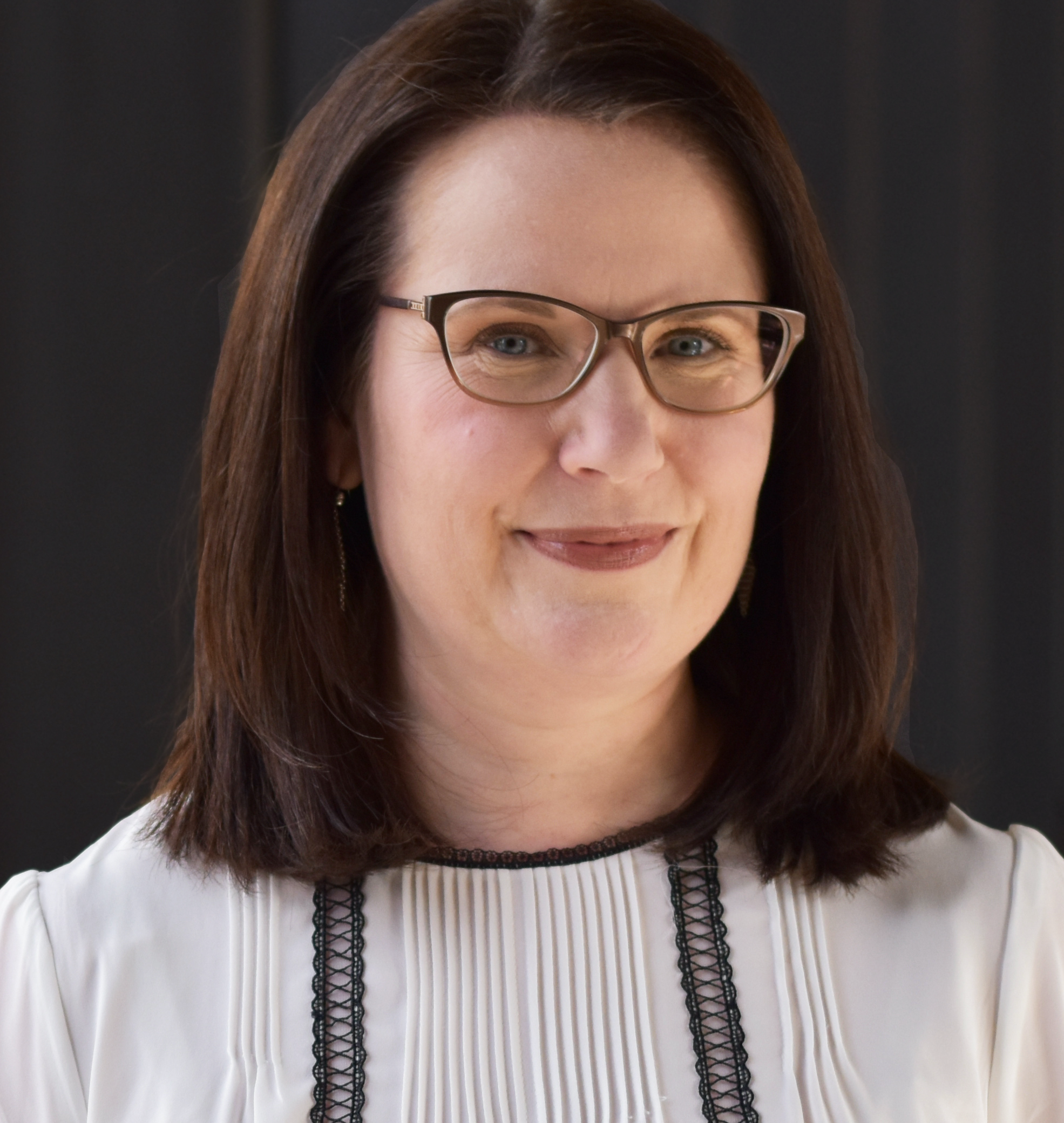
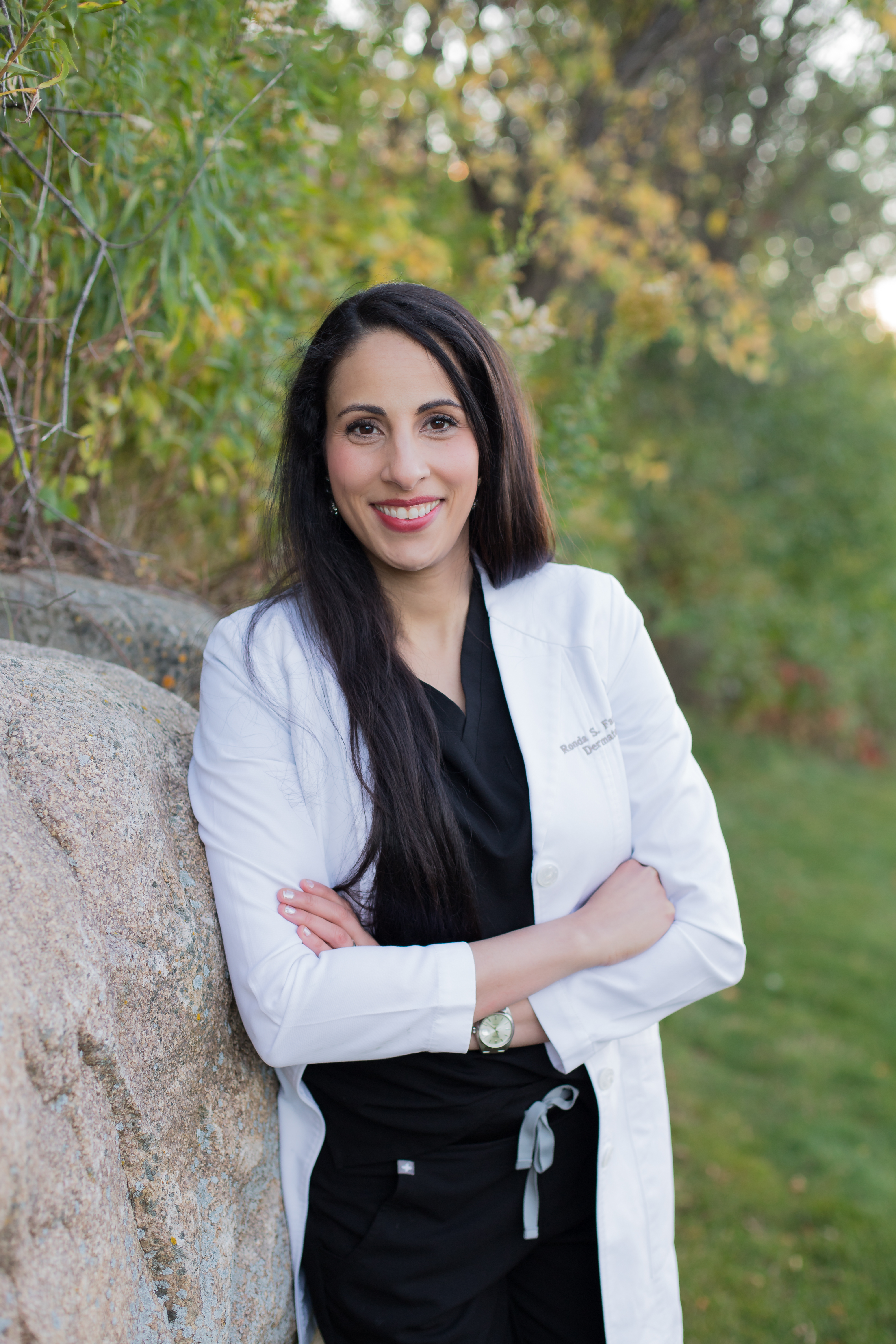
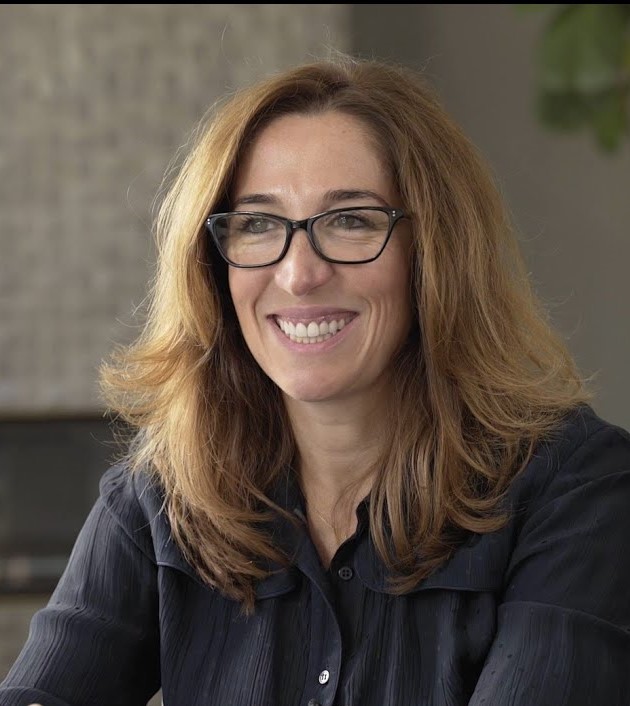
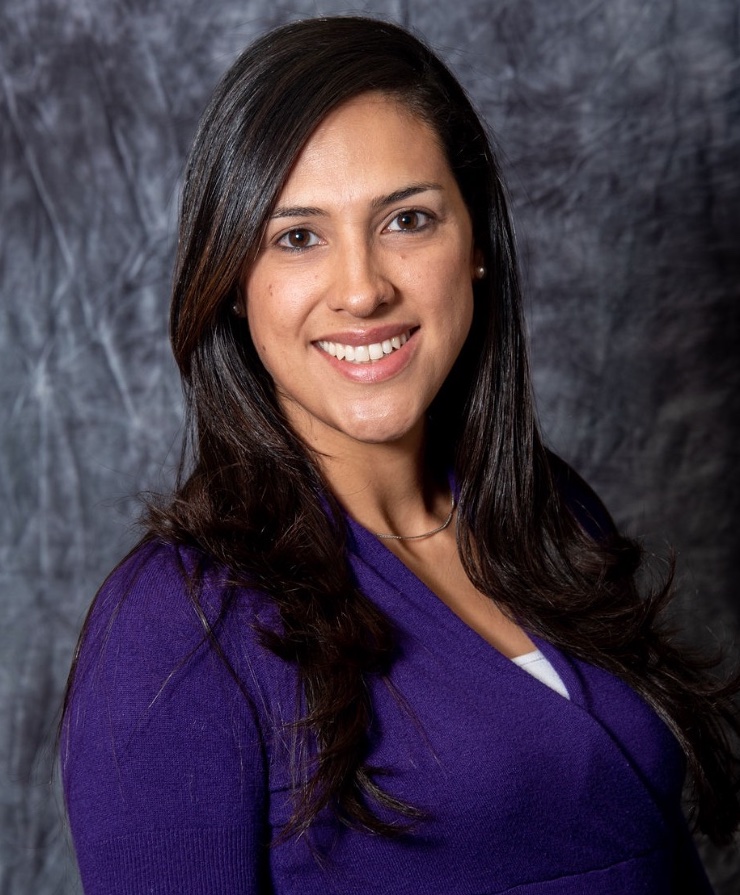
Women as Medical Educators
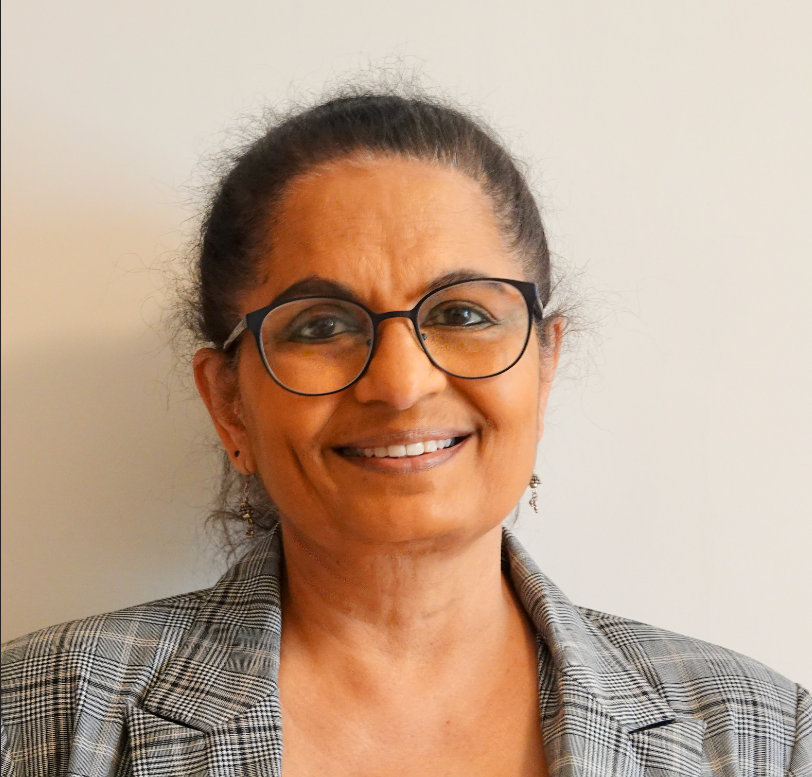
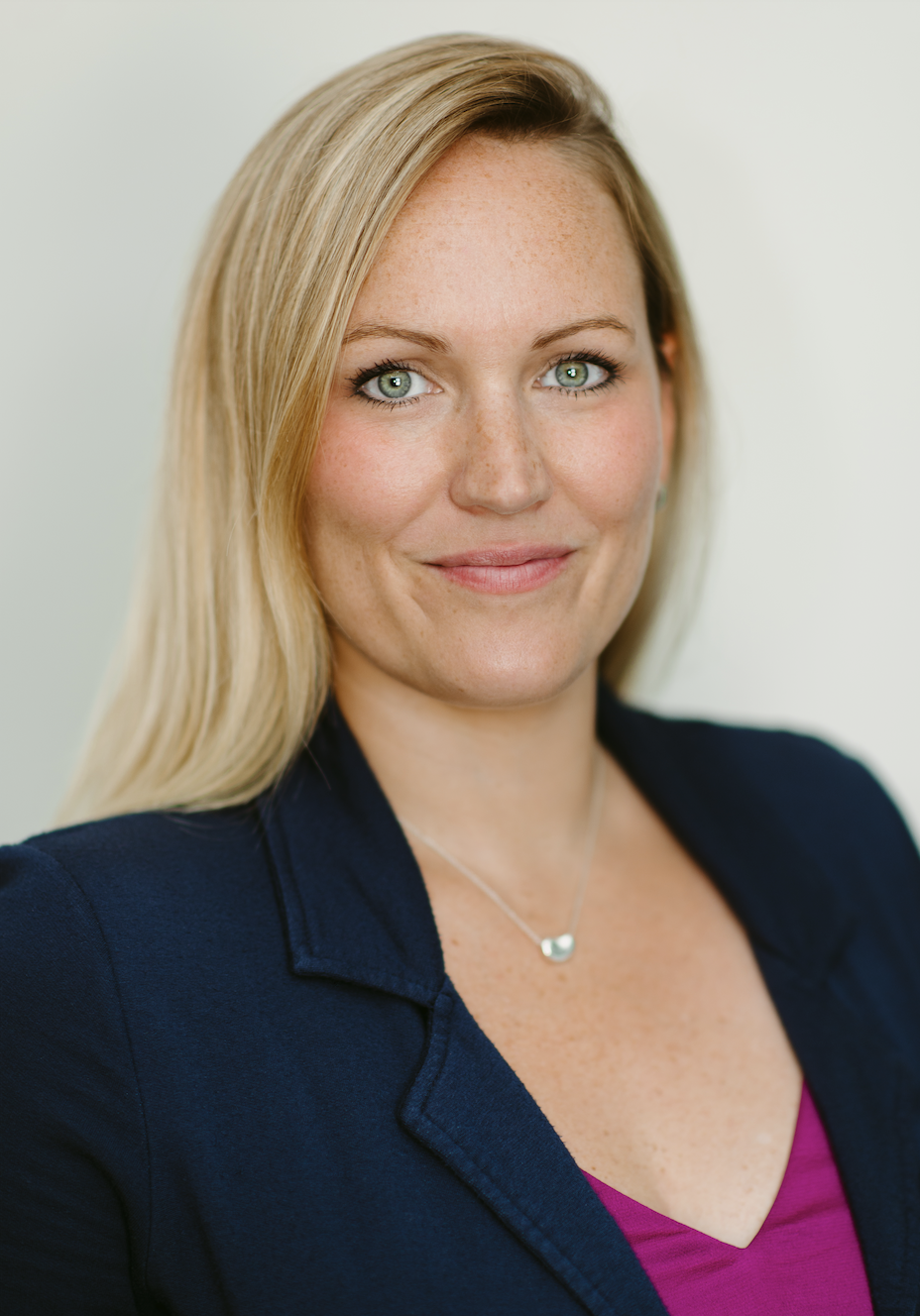
Women as Biomedical Scientists and Researchers
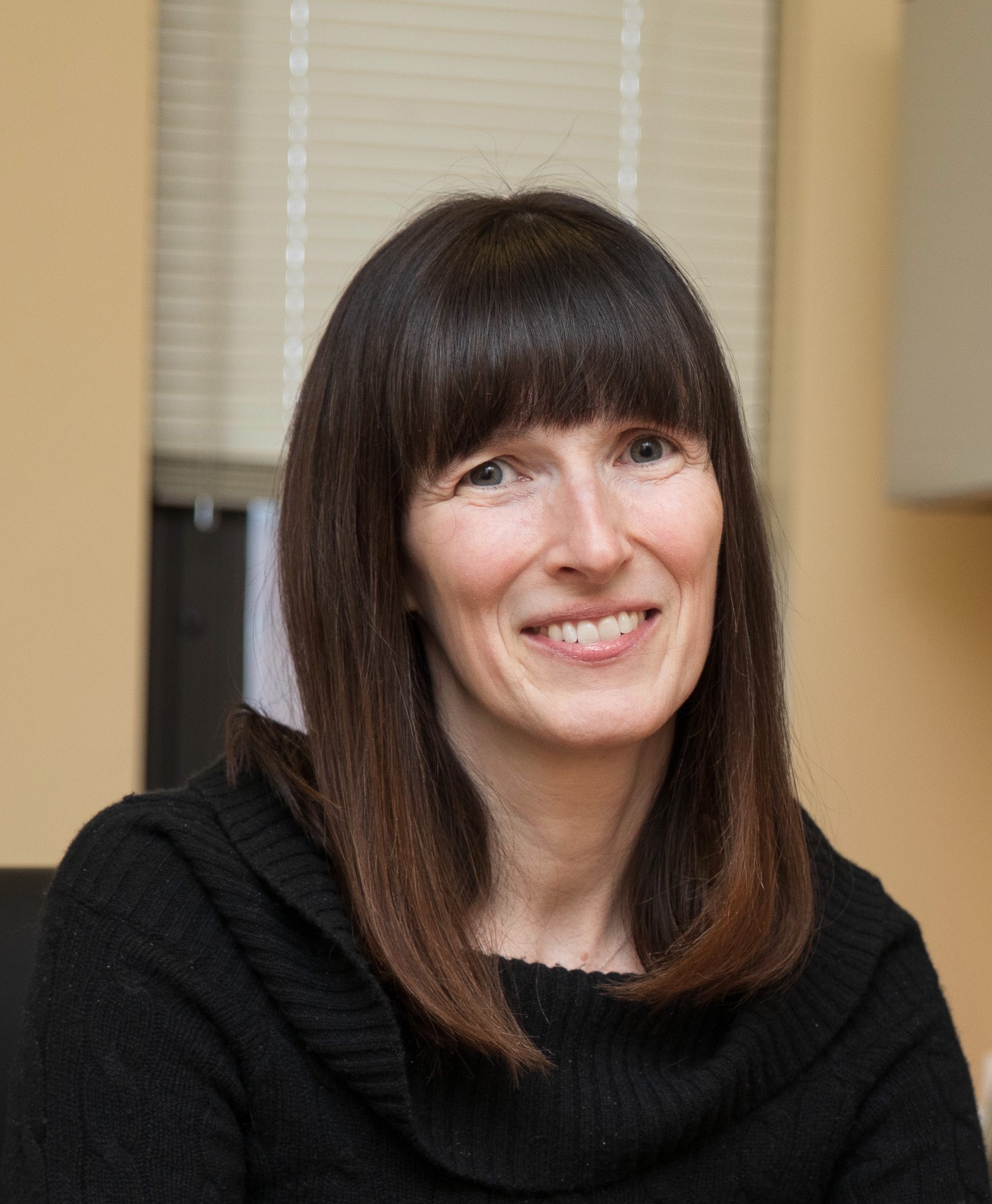
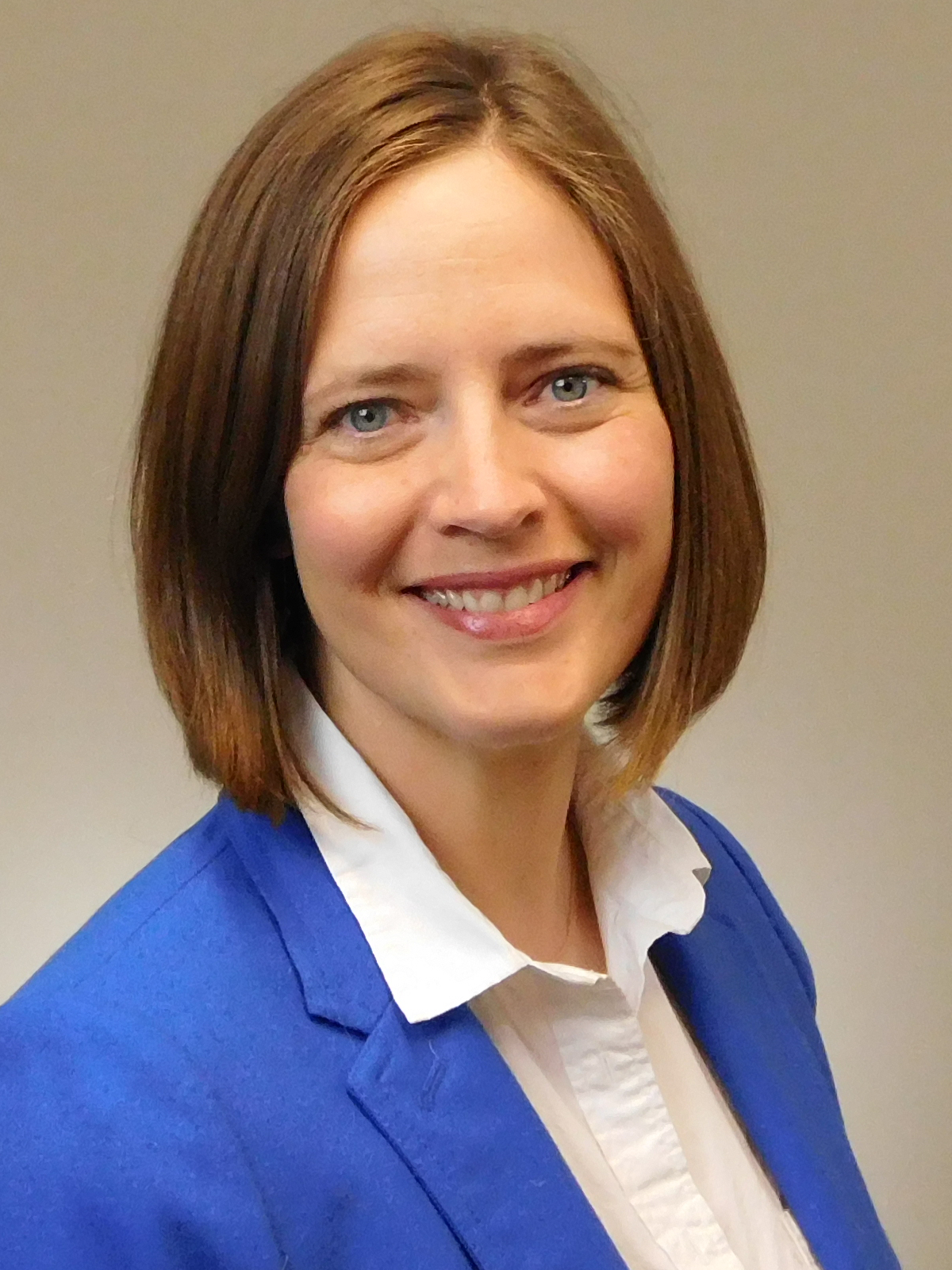
2020 Spotlighting Women in Medicine at the U of M
- 2020 Women as Medical Educators
- 2020 Women as Biomedical Scientists
- 2020 Women as Physicians/Clinicians
- 2020 Women as Leaders in Academic Medicine
Dr. Katherine (Katie) Lingras is an Assistant Professor and Licensed Child Psychologist in the Psychiatry and Behavioral Sciences Department of the University of Minnesota, where she specializes in early childhood mental health, emotional/behavioral regulation concerns, and dyadic (parent-child) treatment for children who have experienced trauma. Her clinical work and research is focused on social-emotional development and building the capacities of the adults who care for them. Dr. Lingras co-directs the Psychiatry Department’s Early Childhood Mental Health Program, which provides assessment and outpatient parent-child treatment, and also works within the community providing mental health
consultation and professional development training in early care and education settings and primary care clinics. Dr. Lingras also founded and co-chairs the Department’s first Equity, Diversity, and Inclusion Council and serves on the Medical School-wide DEI Committee as well. In addition to her research and clinical interests described above, Dr. Lingras regularly conducts community-based trainings integrating her EDI work and child psychology topics. Dr. Lingras completed her undergrad and co-terminal Master’s degrees in Psychology at Stanford University and her doctoral work at the University of Minnesota’s Institute for Child Development, and is happy to be back in the Twin Cities after several years training and working on the East Coast. In her free time, she enjoys spending time with friends and family, running, hiking, and biking the lakes of the Twin Cities, reading, and singing in a community choir.
What are a few ways people can be courageous advocates for equity, diversity and inclusion?
"One of my favorite expressions is "pursue the things that make your blood boil and your heart sing." Unfortunately, these days there are far more "blood boiling" moments when it comes to equity, diversity, and inclusion. But there are plenty of heart-singing moments as well. I am fortunate to serve in an EDI leadership role in our department. My work here began by simply asking the question of "who/what is missing?" When I didn't see an EDI-related committee on the list I was given upon being hired, I asked why not. Fast forward three years, an incredible co-leader, and many dedicated faculty, staff, and learners later and we have an incredibly inclusive, thriving, and productive committee. So, what can you do? Ask why. Educate yourself (start anywhere, two of my favorite EDI books are Why Are All the Black Kids Sitting Together in the Cafeteria? by fellow Psychologist, Dr. Beverly Daniel Tatum and So You Want to Talk About Race by Ijeoma Oluo). The more you learn, the more you'll notice the gaps and the missing voices in any given context. And when you do, speak out. Get comfortable with being uncomfortable. The best learning happens at the edge of our comfort zones, and none of us -- and especially white individuals -- can afford to stay quiet or complacent right now.
Dr. Zimmer received her PhD in Biochemistry, Cell and Molecular Biology at Cornell University and her postdoctoral training at University at Buffalo School of Medicine before becoming a faculty member in Department of Biomedical Sciences at University of Minnesota Medical School, Duluth Campus. Her laboratory is focused on an evolutionarily distinct and understudied group of eukaryotic protozoan parasites, the trypanosomes. In addition to being the vehicle of discovery of multiple novel biological processes, several of these organisms cause neglected tropical diseases for which modern therapeutics are lacking. The Zimmer lab investigates these organisms at the molecular and metabolic level to unearth evolutionary insights and to provide hints of vulnerabilities that represent potential drug targets. Dr. Zimmer collaborates with computational biologists, mathematical modelers, and comparative, systems, and evolutionary biologists to achieve her ends. Her research approach recognizes the importance of melding of biological disciplines and this extends to her passion for graduate education. She is active in the dual campus Integrated Biosciences Graduate Program as research mentor, student graduate committee member, and has served on the executive and admission committees. She is also active in mentorship programs and international dissertation committees beyond those of the University of Minnesota. She has been funded by American Heart Association and is currently NIH funded. Her overarching scientific philosophy is that discoveries essential to driving progress in medicine will be unearthed at the borders of scientific disciplines. Her efforts to drive this sort of discovery at the leadership level includes her recent participation in the NSF-sponsored Reintegrating Biology Agenda.
Please share a few words regarding the importance of taking on new challenges for career growth.
"Scientists and those in academic medicine are the very definition of “lifelong learners”. We are at our intellectual best when at least one (but not all!) aspects of our work life make us a little uncomfortable because they are new. Our curiosity and appetite for challenge are what got us where we are, and both of those drives need to be fed in order for us to produce our best work. We can trust that the skills we have already mastered will provide a stable platform for pursuit of new challenges."
Dr. Porter's laboratory studies the mechanisms that regulate the assembly, targeting, and regulation of motor proteins in cilia and flagella. Motile cilia play critical roles in the development of the left/right body axis, the clearance of foreign particles from the respiratory tract, and ciliary motility in the reproductive tract. Primary cilia function as sensory antennae for monitoring the cellular microenvironment. Ciliopathies are genetic disorders caused by defects in ciliary assembly, motility, and signaling. These disorders include polycystic kidney disease, retinal degeneration, obesity, cardiovascular defects, skeletal defects, and nervous system disorders. Because cilia and flagella are complex organelles composed of more than 600 proteins, understanding the mechanistic basis of disease is challenging. However, cilia are highly conserved and ordered structures, and so study of these organelles in model organisms can be very informative. The Porter lab uses genetic, biochemical, and high-resolution structural approaches to study the genes and gene products associated with ciliary dysfunction in model organisms. This approach has allowed us to identify their counterparts in human disease.
What is a piece of career advice you have for women in your field?
"Recognize that one person is unlikely to meet all of the mentoring needs that you will have in your career. Be pro-active in developing and maintaining a mentoring network."
Dr. Sade Spencer received her B.S. in Biology from the University of Alabama in Tuscaloosa where she developed a love for both college football and science. She pursued a Ph.D. in neuroscience from the University of Texas Southwestern Medical Center studying the links between the molecular circadian clock and the mesolimbic reward pathway. She completed postdoctoral training at the Medical University of South Carolina investigating the neurobiological substrates of drug addiction and relapse using rodent models. In 2018, Dr. Spencer joined the faculty at the University of Minnesota as a member of the newly founded Medical Discovery Team on Addiction. Dr. Spencer’s research program is focused on elucidating the trajectory of neuroplasticity, neurochemistry and behavior associated with chronic drug use. These interests extend to investigating the individual differences that influence vulnerability to substance use disorders including an understanding of how sex differences may play a role. Dr. Spencer is also active in diversity, equity, and inclusion work both at the University of Minnesota level and externally. She has been involved with the Center for Women in Medicine and Science (CWIMS) since the fall of 2018 where she helps facilitate a peer-mentoring program as part of her work with the Recruitment and Retention Action Group.
What are a few ways people can be courageous advocates for equity, diversity and inclusion?
"I think we can all be courageous advocates for equity, diversity, and inclusion by demonstrating vulnerability and honesty as it applies to sharing our individual experiences. It all starts with the difficult and often uncomfortable conversations, and we need voices from all perspectives. Hopefully out of those discussions will come collaborative solutions. Some of those solutions will ultimately fail and we can learn from that failure, but some may spark real and lasting change."
Dr. Hutto is involved in clinical care, teaching and research. She currently serves as the OB/GYN clerkship director and is a member of the Clinical Education Committee and Committee on Student Scholastic Standing at the University of Minnesota Medical School. Dr. Hutto was chosen as the 2020 Alpha Omega Alpha Honor Medical Society faculty inductee. She has been recognized for her excellence in education with the ACOG CREOG National Faculty Award in 2018, Leonard A. Lang OB/GYN Department Teaching Award in 2019, and SASGOG Academic OB/GYN Specialists Faculty Award in 2020. Medical education is her passion and is the primary focus of her research activity. Dr. Hutto is a member of the CWIMS Retention and Recruitment Action Group and the Birthplace, Interdisciplinary and Zero Birth Injury Committees at M Health Fairview which focus on Quality Improvement Projects. She completed her residency in Obstetrics, Gynecology and Women's Health at the University of Minnesota where she served as Chief Administrative Resident. She received her Doctor of Medicine from Wayne State University School of Medicine and earned her Master of Public Health at the University of Michigan in the Department of Epidemiology with a concentration in Reproductive and Women's Health.
What do you think is an important issue to consider when it comes to gender equity in academic medicine and science right now? Why?
"I strongly believe to achieve gender equity in academic medicine and science we need to have more women in leadership roles. As the brilliant Ruth Bader Ginsburg said, “Women belong in all places where decisions are being made.” There are many studies which show the clear benefits of having women in these positions. I have been fortunate to have strong women in my family and as mentors who have motivated and encouraged me in life. Having women as leaders shows a commitment to engaging women in our fields and provides role models who will inspire future generations of women to achieve and succeed."
Dr. Pusalvidyasagar (“Sagar”) received her training at Osmania Medical College (Hyderbad, India), completed her internal medicine residency at Howard University (Washington, D.C.), and a sleep medicine fellowship at the Mayo Clinic (Rochester, MN). Before her sleep medicine fellowship, she practiced primary care in a medically underserved rural setting and was a research fellow in cardiovascular physiology at the Mayo Clinic. She is a fellow of the American Academy of Sleep Medicine (AASM) and a past fellow of the Women’s Leadership Institute at the University of Minnesota. In addition to her busy clinical practice and teaching responsibilities, Dr. Sagar has research interests in the role of sleep in women’s health and in sleep disordered breathing’s association with cardiovascular disease. She is a frequent speaker on sleep medicine topics. Dr. Sagar joined the Center for Women in Medicine and Science in June 2018 as the action group leader for the Mentoring Action Group and is passionate about the advancement of CWIMS’s mission and addressing all forms of inequity.
What is a piece of career advice you have for women in your field?
"My advice is to find mentors who can help guide your growth. I've been very fortunate to have many wonderful mentors over the years, both men and women. I think our needs for different types of mentors evolve, so it's okay to switch, or have more than 1 mentor at a time. As I've progressed in my career, senior women's mentorship has become even more important to me. Now it's my turn to give back."
Dr. Thomas received her medical degree from the Medical College of Wisconsin. She went on to complete her Internal Medicine residency at Hennepin County Medical Center followed by her Medical Oncology fellowship at the National Cancer Institute/National Institutes of Health. She stayed on as a research fellow at the NCI focusing on GI malignancies and phase I drug development. She obtained a Master of Health Sciences in Clinical Research from Duke University. Her oncology career has been focused on gastrointestinal and breast cancer. During her academic career, she presented and chaired at national scientific conferences. Her non-clinical work explores solutions to advance equity in medicine and sciences and address the barriers to physician wellbeing. She is currently leading a collaborative proposal between the Center for Women in Medicine and Science and the Wellbeing Alliance to advocate for safety, equity, and dignity in the healthcare workplace. She is on the Board of Trustees for the Minnesota Medical Association and participates in committees focusing on Women in Medicine, Physician Leadership, and Wellbeing in Healthcare.
What are a few ways people can be courageous advocates for equity, diversity and inclusion?
"The barriers for diversity, equity, and inclusion lies in institutional policies and procedures along with conscious and unconscious biases. Challenges in advocacy come from the frustrations of not moving forward, fear of raising one’s voice, and internal organizational obstacles. Progress may appear unattainable. Take heart that the goal of sustained success will require time. The guiding force for change which is rooted in compassion, understanding, service, and hope will be a source of strength during these times of difficulty and doubt."
With a master in science education and a PhD in physics from the University of Brussels, Belgium, Professor Cornelissen joined the University of Minnesota in 1976 to work with Franz Halberg who founded the discipline of Chronobiology. Her thesis on time series analysis applied to problems of frequency standards provided her with expertise to analyze serial data to extract information for the characterization of complex systems that human physiology represents and the forecasting of their future evolution. Her lifelong career in chronobiology gave her the opportunity to apply this knowledge to the field of medicine, notably now that miniaturized electronic biosensors can monitor physiological variables of a large number of subjects remotely in real time. Her expertise in the field of blood pressure and heart rate monitoring in health and disease, drawing from diverse populations in the USA and abroad provides a rich source of information to understand how features of blood pressure variability relate to cardiovascular disease risk. As coordinator of the international Project on the BIOsphere and the COSmos (BIOCOS), she derived time-specified reference values accounting for the circadian variation, gender differences and trends with age. She showed that abnormal circadian blood pressure variability drastically increases cardiovascular disease risk in normotension as well as in hypertension, and that personalized treatment timing (chronotherapy) can reduce risk by restoring healthy patterns. Also central to her work in chronobiology has been the development of methodology for data analysis and the design of experiments that account for the rhythmic structure of data.
What is a piece of career advice you have for women in your field?
"What is most important is to follow your heart: do what you enjoy doing and what you are best at doing, and place your efforts toward endeavors that are likely to have a meaningful and positive impact. Your professional activities should be fun, not work. Choose a career path that enables you to pursue the questions you care most about and want to see answered. Know your strengths and weaknesses in every decision you make, and always consider the facts without any preconceived idea or any existing dogma."
Dr Dwivedi is a University of Minnesota Assistant professor of Family medicine and community health and chief clinical officer at the Community University health care center. She received her medical training at Vaishampayan Memorial medical school India, and completed residency in Family medicine at the University of Minnesota. She was also honored to serve as chief resident in family medicine at the University of Minnesota. Dr Dwivedi is involved with several leadership and quality committees all across Minnesota and serving as director at large within the executive committee of Minnesota AFP. She is currently leading a task force which is looking at the barriers in covid testing in diverse communities in Minnesota. Dr Dweivedi is an educator and likes to create new models of teaching and culturally competent care deliveries. Her special interest in education include global health and culturally sensitive care, she is also invested in improving health disparities, mentoring medical students and residents.
What is a piece of career advice you have for women in your field?
"Not being afraid, asking questions, learning when to say yes and no, and having a few mentors are some of the things that can help a woman in advancing their career choices. Learning the balance between personal and professional goals and finding what actually gives joy and purpose to life. Examining where you want to spend your time, energy and mind. Don’t underestimate yourself, take new challenges even when you think you might fail. Building a network of people, friends, colleagues who can support you in your journey. Most important being gentle to yourself. "
Dr. Rahel Ghebre is a Professor in the Department of Obstetrics and Gynecology, Division of Gynecologic Oncology at the University of Minnesota Medical Center. Dr. Ghebre is a practicing gynecologic oncologist at M Health Fairview. She gained her MD from the University of Michigan and MPH from Johns Hopkins Bloomberg School of Public Health. Dr. Ghebre is board certified in Obstetrics & Gynecology and Gynecologic Oncology. She is an expert in the surgical and medical management of women diagnosed with ovarian, endometrial, cervical and vulva/vaginal cancers. Her research is focused on improving cancer care for women with gynecologic cancers in the US and globally by increasing access to quality care and clinical trials. She serves as chair for gynecology oncology special interest group under AORTIC (African Organisation for Research and Training in Cancer), as panel member of NCCN Harmonized Guideline committee for sub-Saharan Africa, ASCO resource stratified guideline and African Cancer Coalition, an initiative supported by the American Cancer Society. Dr. Ghebre is an internationally recognized educator in gynecologic oncology and received the 2020 International Gynecologic Cancer Society (IGCS) Award for Excellence in Teaching. Dr. Ghebre co-leads the Early Pathway to Success Program for women faculty through the Center for Women in Medicine.
What is a piece of career advice you have for women in your field?
"The women in my field are phenomenal. Every day I have the pleasure of working alongside nurses, doctors and so many healthcare workers who bring the best of themselves to work. In my division, department and medical school there are women who are dedicated educators and innovative scientist. These women are working harder today than ever despite all the current COVID challenges. My career advice is to pause and recognize the amazing work you are doing and if you need a day or week off to recharge yourself, DO IT. I think the secret ingredients are trusting in your skills, overcoming fear of failure and a spirit of adventure. Being part of a group such as our Early Pathways to Success Program for women faculty is also a great advantage; it’s a safe place where we support each other to take on new and larger career challenges. We all belong in academic medicine."
Events
2022 CWIMS Annual Fall Retreat: Building and Leveraging Relationships to Advance Your Career and Wellbeing
September 22, 2022
12:00-4:00 pm CDT | Zoom Webinar
Join us for an interactive retreat and learn how to develop effective relationships for your career and growth! We will welcome keynote presenter Tanya Menon, PhD and have multiple empowerment breakout sessions focused on creating community and fostering career growth opportunities. This event is open to people of all gender identities who are University of Minnesota faculty, staff, students, and/or community members. Register Today! For more information visit z.umn.edu/CWIMSretreat
AMA Women in Medicine Month Webinar: Gender Diversity in Leadership
September 23, 2022
12:00pm pm CDT | Zoom Webinar
The annual Women in Medicine Month webinar, sponsored by the Women Physicians Section (WPS), celebrates women physicians, residents and students. The WPS will host a special Women’s History Month webinar on gender diversity in leadership. Join us as Sandra Adamson Fryhofer, MD, presenter; Iffath Abbasi Hoskins, MD, FACOG, presenter; Darilyn V. Moyer, MD, FACP, presenter; and Susan Thompson Hingle, MD, moderator, discuss pathways to leadership and share insights on the role of organized medicine in facilitating gender equity. Register now.